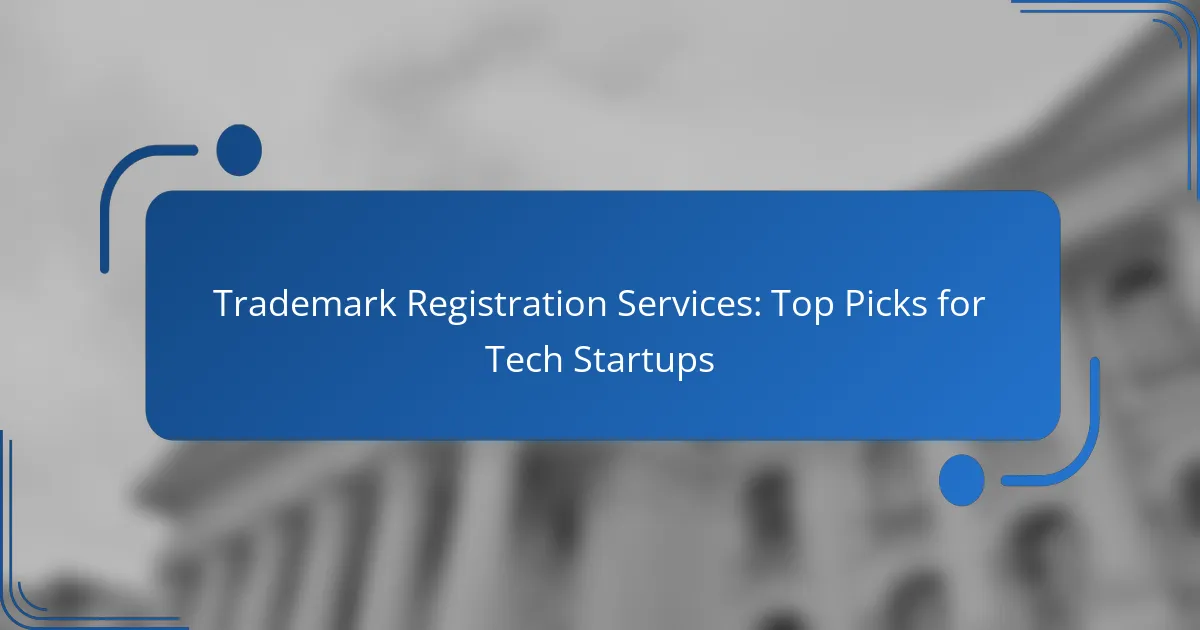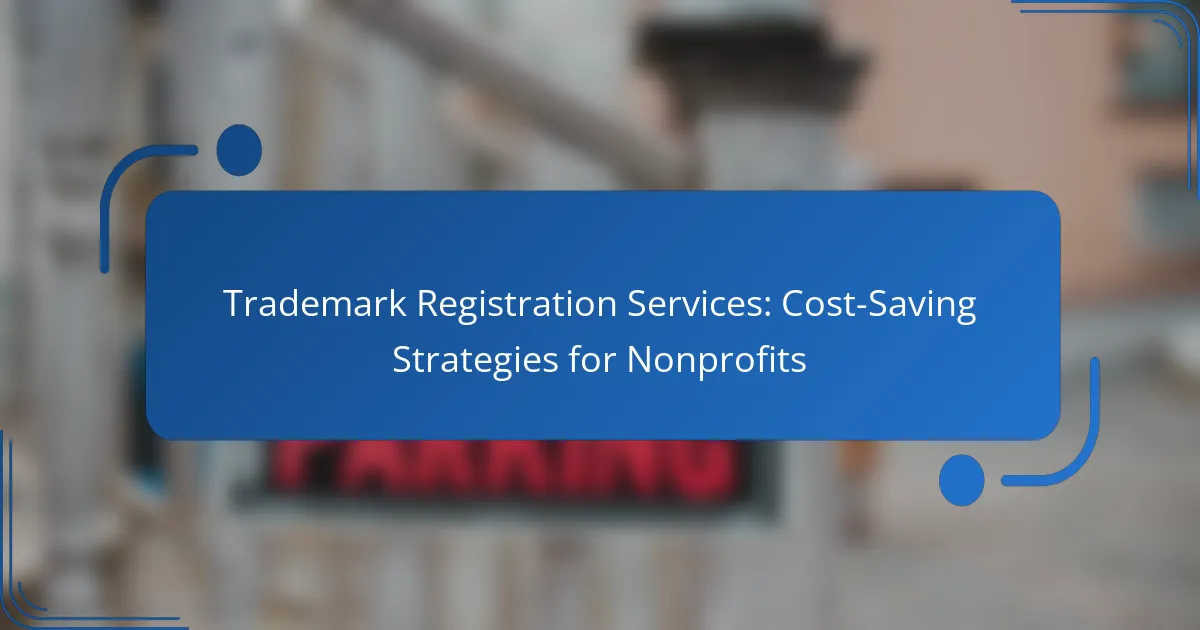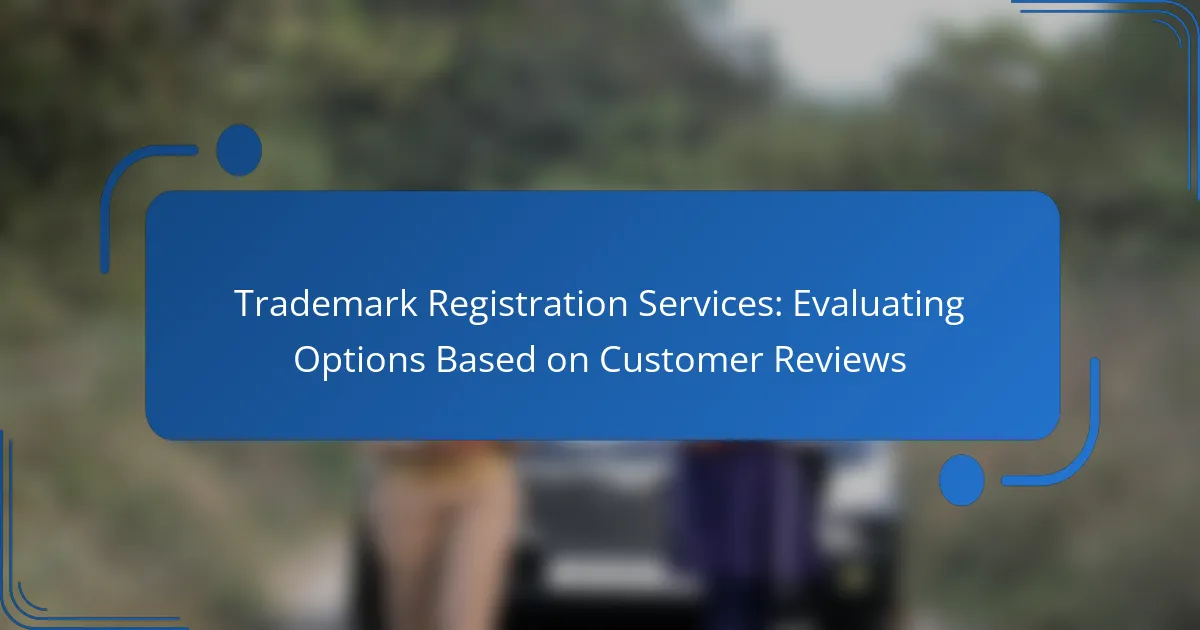For tech startups, selecting the right trademark registration service is essential to protect their brand identity in a competitive market. These services not only simplify the registration process but also provide valuable support in navigating trademark law complexities. Understanding the costs and steps involved can help startups make informed decisions and secure their intellectual property effectively.
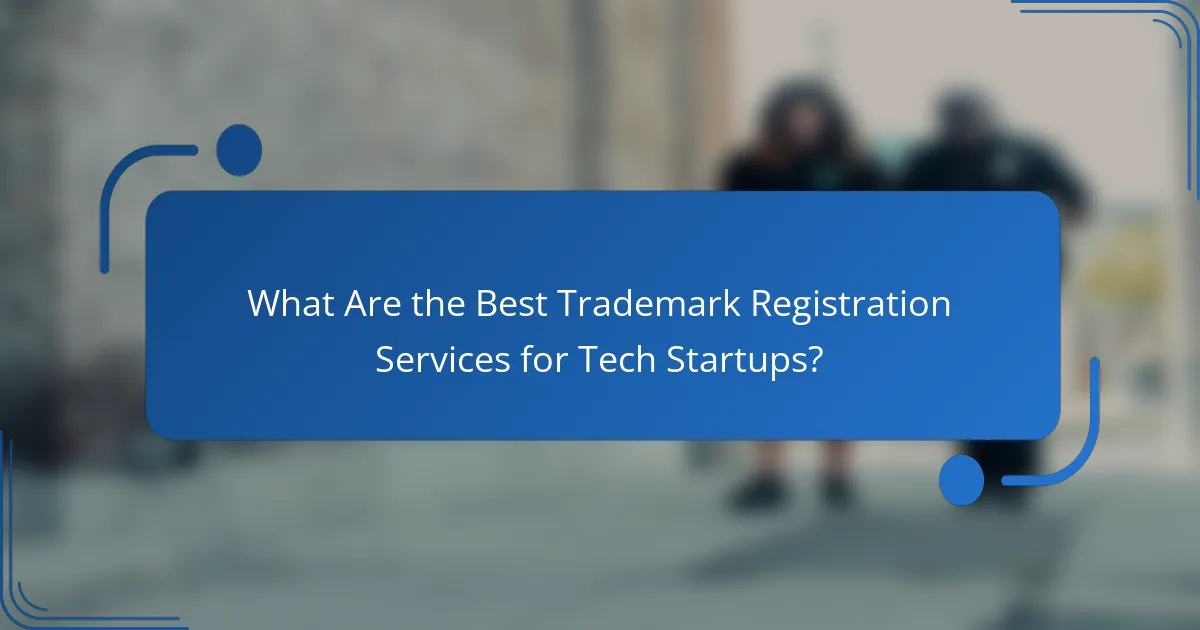
What Are the Best Trademark Registration Services for Tech Startups?
The best trademark registration services for tech startups offer streamlined processes, affordability, and comprehensive support. These services help startups secure their brand identity while navigating the complexities of trademark law.
LegalZoom
LegalZoom is a well-known service that provides trademark registration with a user-friendly online platform. Startups can expect a straightforward application process, with packages typically starting around $249 plus government fees.
LegalZoom offers additional services, such as trademark monitoring and legal consultations, which can be beneficial for tech startups looking to protect their intellectual property over time. However, be aware that some users report slower processing times compared to competitors.
Trademarkia
Trademarkia is an affordable option for tech startups, with trademark registration services starting at about $199 plus filing fees. The platform allows users to search existing trademarks to avoid conflicts, which is crucial for new businesses.
One of Trademarkia’s strengths is its extensive database and user-friendly interface, making it easy for startups to navigate the trademark application process. However, it may not offer as much personalized legal support as some other services.
Incfile
Incfile provides trademark registration services starting at approximately $149, plus applicable government fees. This service is particularly attractive for startups that are also looking to incorporate, as it offers bundled packages for business formation and trademark registration.
Incfile’s customer support is noted for being responsive, which can help startups address any questions during the registration process. However, their trademark monitoring services are limited compared to some competitors.
Rocket Lawyer
Rocket Lawyer offers trademark registration as part of its broader legal services, with plans starting around $39.99 per month. This subscription model includes access to legal documents and consultations, which can be advantageous for tech startups needing ongoing legal support.
While Rocket Lawyer provides a comprehensive suite of services, the monthly fee may not be ideal for all startups, especially those seeking a one-time trademark registration. It’s essential to weigh the benefits of ongoing legal access against the cost.
Trademark Engine
Trademark Engine is a budget-friendly option, with trademark registration services starting at about $199 plus filing fees. The platform is designed for simplicity, allowing startups to complete their applications quickly and efficiently.
One key feature of Trademark Engine is its straightforward pricing model, with no hidden fees. However, startups should consider that the level of personalized support may not match that of more premium services.
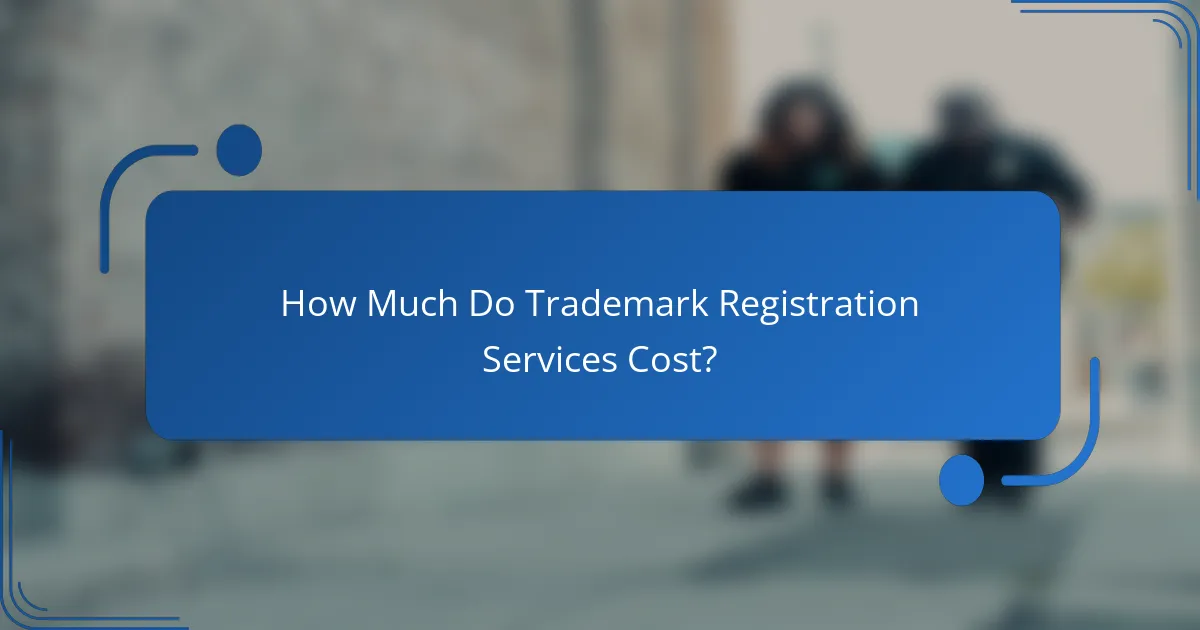
How Much Do Trademark Registration Services Cost?
Trademark registration services typically range from a few hundred to over a thousand dollars, depending on the provider and the complexity of the application. Factors influencing costs include the service level, additional features, and whether legal assistance is included.
Cost of LegalZoom Services
LegalZoom offers trademark registration services starting around $249, which includes a basic filing package. Additional services, such as legal consultations or expedited processing, can increase the total cost significantly, often reaching up to $500 or more.
When using LegalZoom, consider the value of their customer support and user-friendly platform, which can simplify the registration process for tech startups unfamiliar with trademark law.
Trademarkia Pricing Structure
Trademarkia’s pricing structure is competitive, with basic trademark filings starting at approximately $199. They provide various packages that include features like comprehensive searches and monitoring services, which can raise costs to about $400.
Tech startups should evaluate the benefits of Trademarkia’s additional services, such as ongoing trademark monitoring, which can help protect their brand in the long run.
Incfile Fees
Incfile offers trademark registration services beginning at around $149, making it one of the more affordable options. Their packages may include features like a trademark search and filing assistance, but additional costs can arise for more comprehensive services.
Startups should weigh the cost against the level of support provided by Incfile, particularly if they prefer a more hands-on approach to managing their trademark applications.
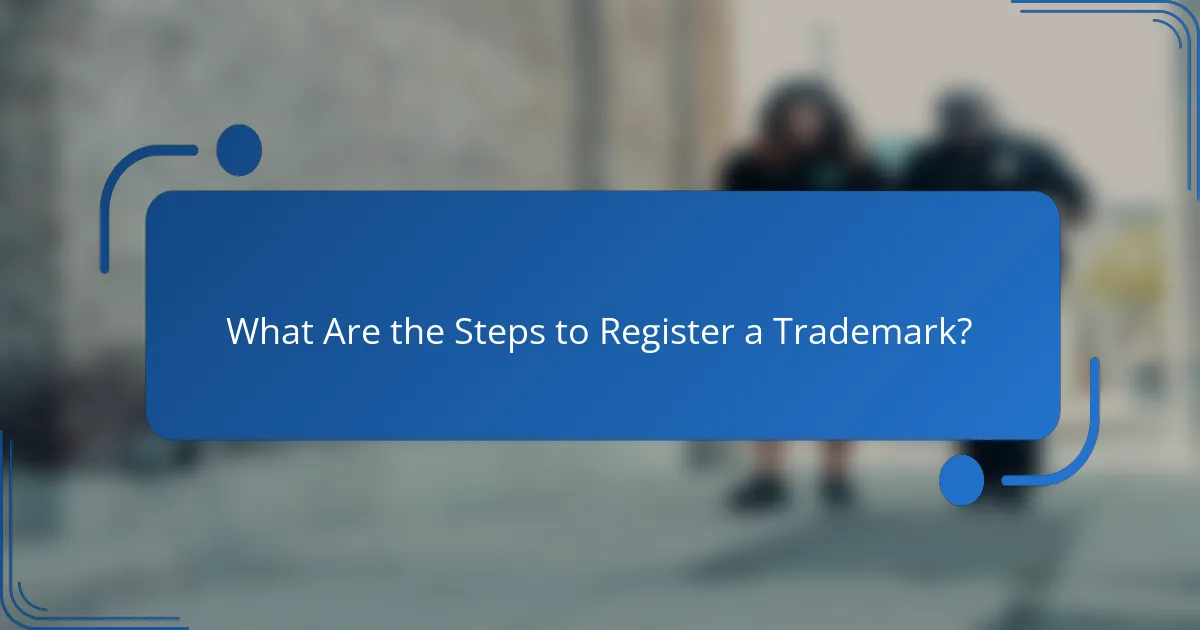
What Are the Steps to Register a Trademark?
Registering a trademark involves several key steps that ensure your brand is legally protected. From conducting a trademark search to responding to any office actions, each step is crucial for a successful registration process.
Step 1: Conduct a Trademark Search
The first step in registering a trademark is to conduct a thorough trademark search. This helps you identify any existing trademarks that may conflict with your desired mark, reducing the risk of legal disputes later on.
Utilize databases such as the United States Patent and Trademark Office (USPTO) or equivalent local resources to check for similar trademarks. Aim to look for marks that are identical or closely related in your industry.
Step 2: Prepare and File Application
Once you have confirmed that your trademark is unique, the next step is to prepare and file your application. This involves completing the necessary forms and providing details about your trademark, including its intended use and the goods or services it will represent.
Be mindful of the application fees, which can vary significantly depending on the jurisdiction and the number of classes of goods or services you are applying for. In the U.S., fees can range from a few hundred to over a thousand dollars.
Step 3: Respond to Office Actions
After filing, you may receive office actions from the trademark office, which require you to address specific issues with your application. These could include requests for clarification or objections based on existing trademarks.
Responding promptly and thoroughly to these office actions is essential to keep your application moving forward. Consider consulting with a trademark attorney if you encounter complex issues, as their expertise can help navigate the process effectively.
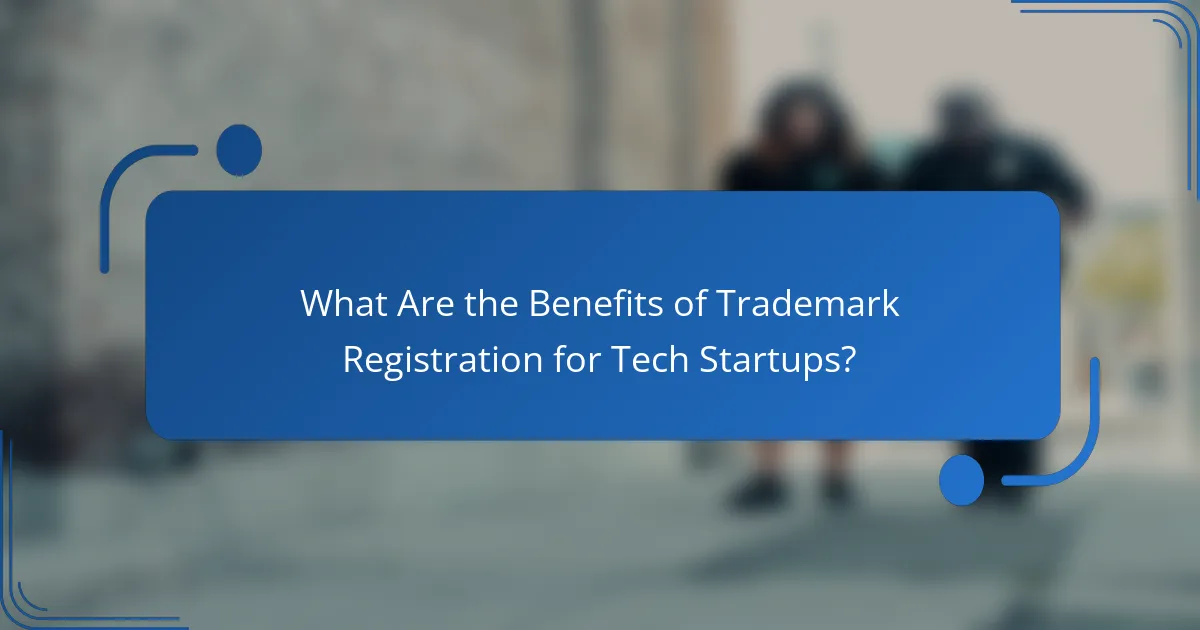
What Are the Benefits of Trademark Registration for Tech Startups?
Trademark registration provides tech startups with essential legal protections, enhances brand recognition, and offers a competitive market advantage. By securing a trademark, startups can safeguard their intellectual property and establish a strong identity in the tech industry.
Legal Protection
Registering a trademark grants exclusive rights to use the mark in connection with specific goods or services. This legal protection helps prevent others from using similar marks that could confuse consumers. Startups should consider filing for trademarks early to avoid potential disputes and ensure their brand is safeguarded.
In the United States, for example, a registered trademark can provide nationwide protection, while unregistered marks may only offer limited rights based on geographic use. Startups should also be aware of the renewal process, which typically occurs every 10 years, to maintain their trademark rights.
Brand Recognition
A registered trademark enhances brand recognition by establishing a unique identity in the marketplace. This distinctiveness helps consumers associate the startup’s products or services with quality and reliability. Over time, a strong trademark can become a valuable asset, contributing to customer loyalty and brand equity.
For tech startups, effective branding can differentiate them from competitors. Utilizing consistent branding elements, such as logos and taglines, alongside trademark registration can significantly boost visibility and consumer trust.
Market Advantage
Trademark registration can provide a significant market advantage by deterring competitors from entering the same space with similar branding. This exclusivity can lead to increased market share and higher profit margins. Startups with registered trademarks often find it easier to attract investors, as they demonstrate a commitment to protecting their intellectual property.
Additionally, a registered trademark can facilitate expansion into new markets. When entering foreign markets, having a trademark can simplify the process of establishing brand presence and navigating local regulations. Startups should research international trademark treaties, such as the Madrid Protocol, to streamline their global trademark strategy.
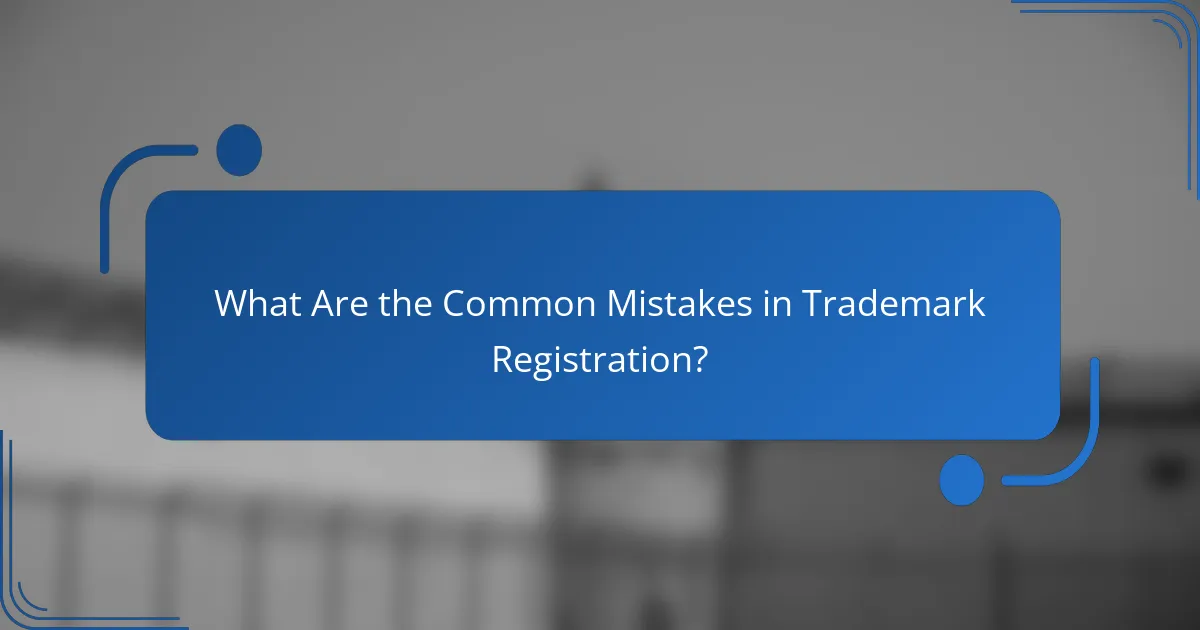
What Are the Common Mistakes in Trademark Registration?
Common mistakes in trademark registration can lead to delays, rejections, or loss of rights. Understanding these pitfalls is crucial for tech startups to secure their brand effectively.
Inadequate Trademark Searches
Many startups fail to conduct thorough trademark searches before applying, which can result in conflicts with existing trademarks. A comprehensive search should include not only registered trademarks but also common law marks and pending applications.
To avoid this mistake, utilize professional trademark search services or databases to identify potential conflicts. This proactive approach can save time and resources in the long run.
Incorrect Application Details
Filling out the trademark application with incorrect or incomplete information is a frequent error. This includes misidentifying the goods or services associated with the trademark, which can lead to rejection by trademark offices.
Ensure that all details are accurate and align with the intended use of the trademark. Double-check classifications and descriptions to meet the specific requirements of the relevant trademark office.
Failure to Monitor Trademark Use
Once a trademark is registered, neglecting to monitor its use can lead to unauthorized exploitation or dilution of the brand. Startups should actively track how their trademarks are used in the market.
Consider setting up alerts for similar trademarks or using monitoring services to detect potential infringements. Regularly reviewing trademark use helps maintain brand integrity and enforce rights effectively.
